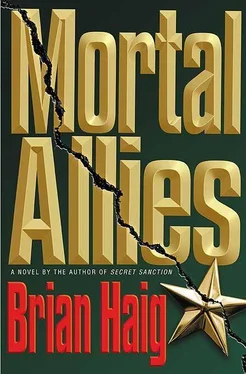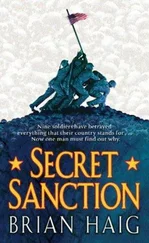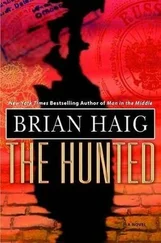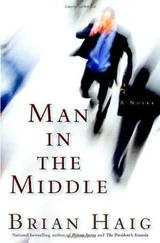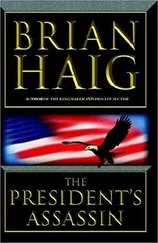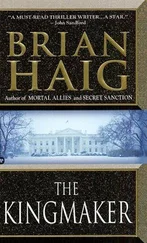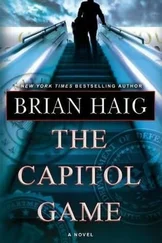Brian Haig - Mortal Allies
Здесь есть возможность читать онлайн «Brian Haig - Mortal Allies» весь текст электронной книги совершенно бесплатно (целиком полную версию без сокращений). В некоторых случаях можно слушать аудио, скачать через торрент в формате fb2 и присутствует краткое содержание. Жанр: Полицейский детектив, на английском языке. Описание произведения, (предисловие) а так же отзывы посетителей доступны на портале библиотеки ЛибКат.
- Название:Mortal Allies
- Автор:
- Жанр:
- Год:неизвестен
- ISBN:нет данных
- Рейтинг книги:3 / 5. Голосов: 1
-
Избранное:Добавить в избранное
- Отзывы:
-
Ваша оценка:
- 60
- 1
- 2
- 3
- 4
- 5
Mortal Allies: краткое содержание, описание и аннотация
Предлагаем к чтению аннотацию, описание, краткое содержание или предисловие (зависит от того, что написал сам автор книги «Mortal Allies»). Если вы не нашли необходимую информацию о книге — напишите в комментариях, мы постараемся отыскать её.
Mortal Allies — читать онлайн бесплатно полную книгу (весь текст) целиком
Ниже представлен текст книги, разбитый по страницам. Система сохранения места последней прочитанной страницы, позволяет с удобством читать онлайн бесплатно книгу «Mortal Allies», без необходимости каждый раз заново искать на чём Вы остановились. Поставьте закладку, и сможете в любой момент перейти на страницу, на которой закончили чтение.
Интервал:
Закладка:
“Then I wouldn’t bet my mortgage on Whitehall.”
I yawned. Having not slept in about forty hours, I was exhausted. All the adrenaline rush of the past few hours had dribbled away and left me an empty hulk.
“Jesus,” Mercer finally muttered, “you look like crap. Go to bed.”
I gave him a grim smile. “You mean I’ve done enough damage today?”
“Damage? Drummond, you’re a walking earthquake. I can’t wait till this goddamn trial’s over and you get your overdestructive ass off my peninsula.”
I smiled and got up. “You think Bales and Choi are long gone?”
“Hell yeah. Maybe they climbed on some North Korean fishing trawler or submarine. Maybe they had a private plane stashed somewhere that flew them out under radar.”
“Too bad,” I said, thinking of what that would mean to Whitehall’s defense. Not to mention what it would mean to Katherine, who was expecting me to come up with the goods. If those goods were just getting settled into a hotel in Pyongyang, they were out of my reach.
“Yeah,” the spymaster said. “Very fuckin’ too bad.”
CHAPTER 42
The way the law works, the defense and the prosecution start each case with a tug-of-war on pretrial discoveries. The first real skirmishes of any criminal trial are battles of discovery, which is simply everything you can learn about the crime, the evidence, and the witnesses. You like to learn about these things before the trial begins because it tells you how to mold your strategy. It also keeps you from getting embarrassed and having your case completely trashed by surprises during the trial. Like maybe the prosecutor walks into court with a videotape you didn’t know existed that shows your client shooting a kneeling victim in the head, and all of a sudden your claim of self-defense has a gaping hole in it.
The prosecution, because it works for the state, has ready access to everything the police have, and that’s a fairly telling advantage. The law recognizes that advantage and offsets it by allowing the defense great latitude in learning what the prosecution knows. The prosecution actually has to provide advance notification to the defense of every witness and piece of evidence it intends to produce in court.
There was a time when the courts were so libertarian that defense attorneys had nearly a one-way street. In other words, the prosecutor had to empty the contents of his briefcase, whereas defense counsels only had to share limited knowledge with the prosecutor. Those were the good old days to be a defense attorney. That was before Ronald Reagan and George Bush reigned for twelve straight years and the Supreme Court got a strong injection of conservative steroids.
These days, the exchange of notification and shared evidence is nearly equal. The whole idea is to keep either side from monopolizing critical knowledge and unfairly bushwhacking the other in the courtroom.
All this is by way of explaining why Eddie submitted a motion to Carruthers about me. Like I’ve said several times, when it comes to matters of the law, Eddie has few equals.
The gist of the matter was that Eddie demanded to know my role in the disappearance of his two key witnesses. He somehow found out I’d been beaten while under their custody, and he wanted to know if I’d pursued a vendetta against them. What he was suggesting was that I might’ve crossed over the line of serving as a defense counsel and become personally implicated in the case.
The law has some fairly quirky rules about the relationship of attorneys to anybody else in a courtroom. Say, for example, either counsel is married to, or sleeping with, the judge, or the jury chairman, then somebody’s expected to recuse themselves. Those are ludicrously self-evident examples, but there are many others that are more slithery. For example, if a defense attorney becomes privy to knowledge about key opposition witnesses by working with a government investigatory agency, that also might imply a need for recusal or disqualification.
Eddie had no direct knowledge about my activities except his gut instinct, but in this case his washboard tummy was reliable. So he fired a well-placed shot in the dark.
How did I learn this? Because there was a big red sticker pasted on the door to my hotel room when I got back. The handwriting was Katherine’s. It said, “My room! Immediately!!”
Her chilling reception spoke volumes. She opened the door, fixed me with a frosty frown, tossed Eddie’s motion in my face, then spun around and walked over to a chair by the window. She fell into it and waited.
I read it. His suspicions were vague, and some of the details were salaciously off base, but Eddie’s query was inclusive enough that I was in big trouble. In a nutshell, he wanted to know if I was in any way involved in the flight of his two key witnesses. That was broad. That was too broad to wiggle out of.
The truth was I’d probably crossed some line. I hadn’t meant to. I’d been unintentionally drawn much deeper into the CIA’s counterespionage activities than I’d expected, and along the way, I’d become a player.
“Well?” Katherine asked, once I’d digested the motion.
“Well, well,” I evasively replied. I could feel my face redden. I hoped my bruises and scabs kept it hidden.
The room got colder. “Do we have a problem here?”
“We could,” I admitted.
“Tell me about it,” she demanded. She had the right to know.
But I couldn’t sate her highly warranted curiosity. Everything involved in the Bales-Choi case was classified. If I told her a word and suddenly journalists started showing up on Mercer’s doorstep, I’d be looking at prison time.
I said, “I can’t.”
She looked quite angry. “The hell you can’t, Drummond. You’re my co-counsel. You work for me on this case. I have every right to know what you’ve been doing.”
“All the more reason I can’t. If I share my knowledge with you, I’ll infect you. You’ll be just as much at risk as I am of being disqualified.”
That wasn’t what she wanted to hear, but it was true. If I informed her what I’d learned about Bales and Choi by working with the CIA and the KCIA, she’d share in the fruits of my efforts.
Right now, everybody on the defense team partook of the common suspicion that the Itaewon precinct was rotten. They also shared the unproven conjecture that Choi and Bales were fixing cases and framing our client. Their motive, though, was still a mystery. Maybe it was anti-Americanism, like I’d suggested in one strategy review. Maybe it was antigay hysteria, like Allie had suggested. Maybe they were taking money or trying to drive up their conviction rates. Maybe they were just a couple of homicidal, sadistic maniacs out to create havoc and have a good time.
I was the only one who knew their real motive, and that put me in a box. I couldn’t disclose that motive in court, and with Eddie’s motion I couldn’t even hint at it to Katherine without subjecting her to the same risk of disqualification.
But like I already said, that wasn’t what she wanted to hear.
“Are you admitting involvement in implicating activities?”
“I’m not admitting anything.”
We traded cold fish eyes for a long-drawn-out moment.
Then Katherine stiffly said, “We have an appointment to meet with Carruthers and Golden in one hour.”
And I said, “Forget about it. I’ll have a private conversation with Carruthers. One way or another I’ll get it resolved.”
“Be that as it may. Do I need to prepare a consent for substitution of counsel?”
“It’s probably not a bad idea,” I was unhappily forced to admit.
I awkwardly continued. “There’s one or two really good lawyers here on the peninsula. I know a guy down in Pusan. He’s a crackerjack. You’d like him. If you want, I’ll make some calls, see if he’s free.”
Читать дальшеИнтервал:
Закладка:
Похожие книги на «Mortal Allies»
Представляем Вашему вниманию похожие книги на «Mortal Allies» списком для выбора. Мы отобрали схожую по названию и смыслу литературу в надежде предоставить читателям больше вариантов отыскать новые, интересные, ещё непрочитанные произведения.
Обсуждение, отзывы о книге «Mortal Allies» и просто собственные мнения читателей. Оставьте ваши комментарии, напишите, что Вы думаете о произведении, его смысле или главных героях. Укажите что конкретно понравилось, а что нет, и почему Вы так считаете.
